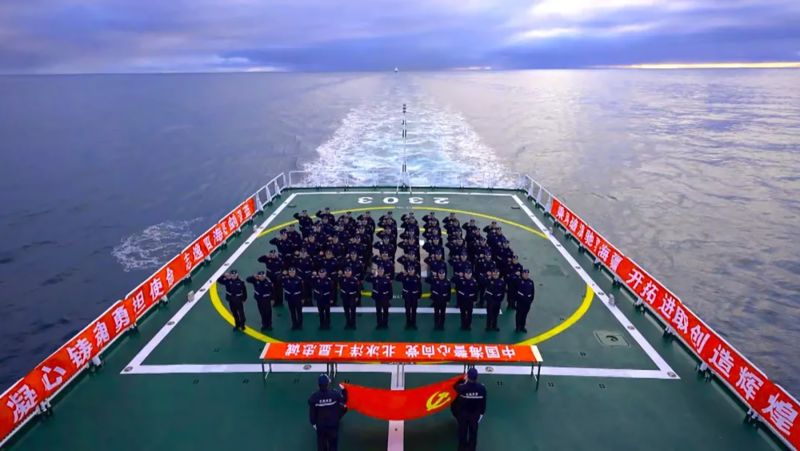
China’s Coast Guard Ventures into the Arctic Ocean for Unprecedented Security Boost with Russia!
Within the evolving geopolitical dynamics, the Chinese Coast Guard has reportedly entered the Arctic Ocean for the first time, marking a significant milestone and propelling the country further into a new frontier. This new development parallels China’s increasing security integration with Russia, raising an array of strategic implications.
China’s Arctic expedition is unprecedented, dramatically epitomizing the country’s efforts to assert its presence in the polar region. Until now, China’s move has been viewed largely within the scope of an explorative or scientific perspective. However, this maiden journey of the Chinese Coast Guard into the Arctic Ocean has illuminated its strategic interests that extend beyond exploration and research.
Reports indicate that the Haijing 5202, a Chinese Coast Guard vessel, entered the Arctic Ocean via the Northeast Passage over Russia in late July this year. Further magnifying the importance of this maritime movement, the vessel is said to be one of the world’s largest coast guard ships, known for its ice-resistant features. Therefore, its penetration into the Arctic region not only inaugurates China’s Coast Guard presence but also illustrates the country’s ambition to flex its maritime muscle in harsh, icy conditions.
Simultaneously, this move portrays the strengthening bond between China and Russia regarding security matters. Both nations have been ramping up their strategic ties amidst the ongoing global scenarios. China’s Arctic venture aligns with Russia’s ambition to ensure the viability and accessibility of the Northern Sea Route (NSR), a prominent artery for commerce and navigation bridging Asia and Europe via the Arctic Ocean.
Russia, having significant territorial boundaries within the Arctic circle, has been diligently working on enhancing its military and strategic prominence in the region. Coinciding their interests, China’s debut in the Arctic through the Northeast Passage over Russia exemplifies a sino-Russian synergy, harmonizing their shared aspirations for Arctic sovereignty.
Moreover, China’s Arctic ambitions follow its recognition as a “Near-Arctic State,” and its unveiling of the ‘Polar Silk Road’ initiative – a strategic vision extending its Belt and Road Initiative into the Arctic region. Entering the Arctic Ocean correlates with these aspirations, indicating an effort to substantiate its claims and strategic policies.
However, China’s enhanced interest and intrusion in the Arctic region may disrupt the existing geopolitical equilibrium, invoking concerns among other Artic Council members, including the United States, Canada, and Nordic countries. Concerns relating to freedom of navigation, environmental issues, indigenous peoples’ rights, and sovereign rights over resources are set to emerge, demanding diplomatic
